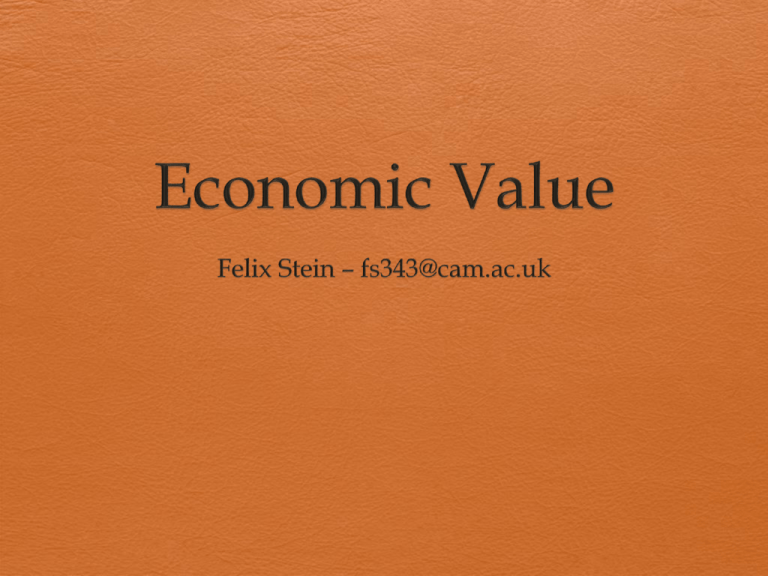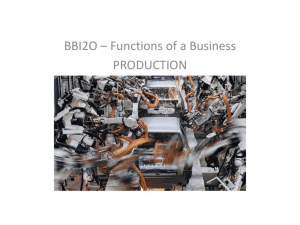Economic Value - WordPress.com
advertisement

The value paradox of money Money as a store of value? Money as a representation of value? Structure of the lecture 1. Economic value lies in the natural environment 2. Economic value lies in human labour 3. Economic value lies in subjective understandings of marginal utility 1. Economic value lies in the natural environment - Andes Gudeman and Rivera Value stems from the earth Strength circulates between man and earth Hierarchical reciprocity Natural and spiritual entities 1. Economic value lies in the natural environment - Physiocrats Physis – „nature“, kratos – „power“ Agriculture as source of all value Industry and commerce as „sterile“ 2. Economic value lies in human work – Andes (Laymi in Bolivia) Olivia Harris Work as valuable in and of itself Work as foundational activity of social life Gender Household Community Personhood 2. Economic value lies in human work – Adam Smith [money and certain goods] indeed, save us […] toil. They contain the value of a certain quantity of labour, which we exchange for what is supposed at the time to contain the value of an equal quantity. Labour was the first price, the original purchase money that was paid for all things. It was not by gold or by silver, but by labour, that all the wealth of the world was originally purchased; and its value, to those who possess it, and who want to exchange it for some new productions, is precisely equal to the quantity of’ labour which it can enable them to purchase or command.” (Smith: 1976, Chapter V) “labour alone […] never varying in its own value, is […] the ultimate and real standard by which the value of all commodities can at all times and places be estimated and compared. It is their real price; money is their nominal price only” (Smith: 1976, Chapter V). 2. Economic value lies in human work – Adam Smith Labour as ultimate and real standard of value Distinguishes between „real“ value of labour and exchange value/„nominal price“ Scepticism of rents and profits (Diamond-water paradox distinguishes between use value and exchange value) 3. Economic value lies in marginal utility - Jevons Value based in subjective emotions (pleasure and pain) Value is relational i.e. situated in the interplay of people and objects Marginal value matters more than absolute value Utility is all-encompassing Qualities of things do not matter Quantification as key method for the study of value Conclusion – The study of co-existing value theories Studying the coexistence of collective conceptions of value Meaning (Munn and Graeber) Power and conflict (Gregory and Rival) Technology (Bohannan and Kopytoff) Source: 2011: http://www.bbc.co.uk/news/business-11942117






